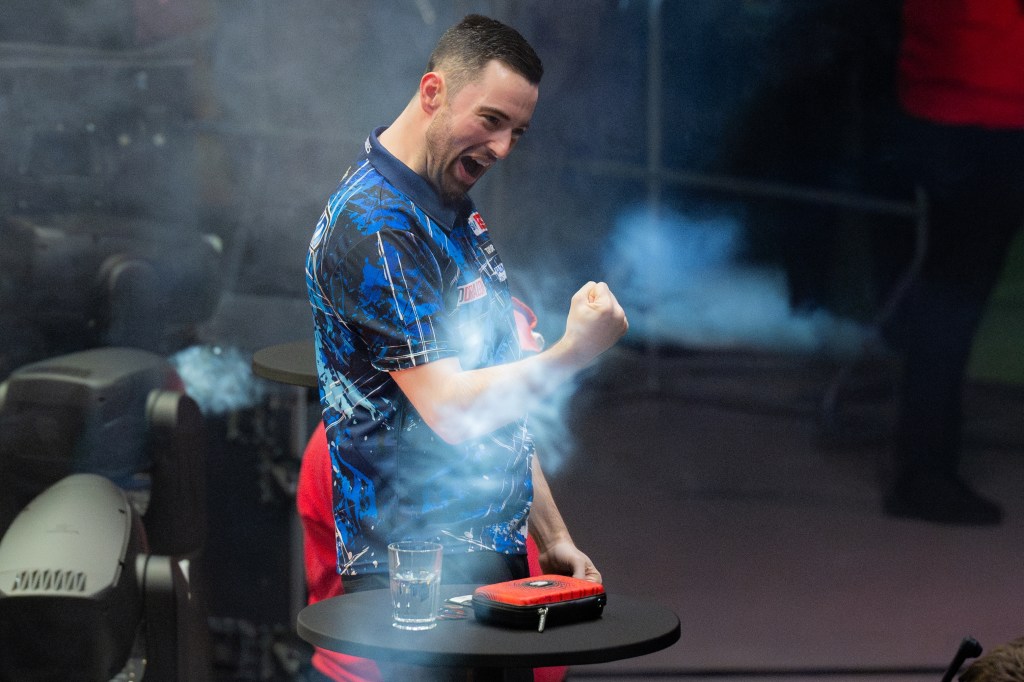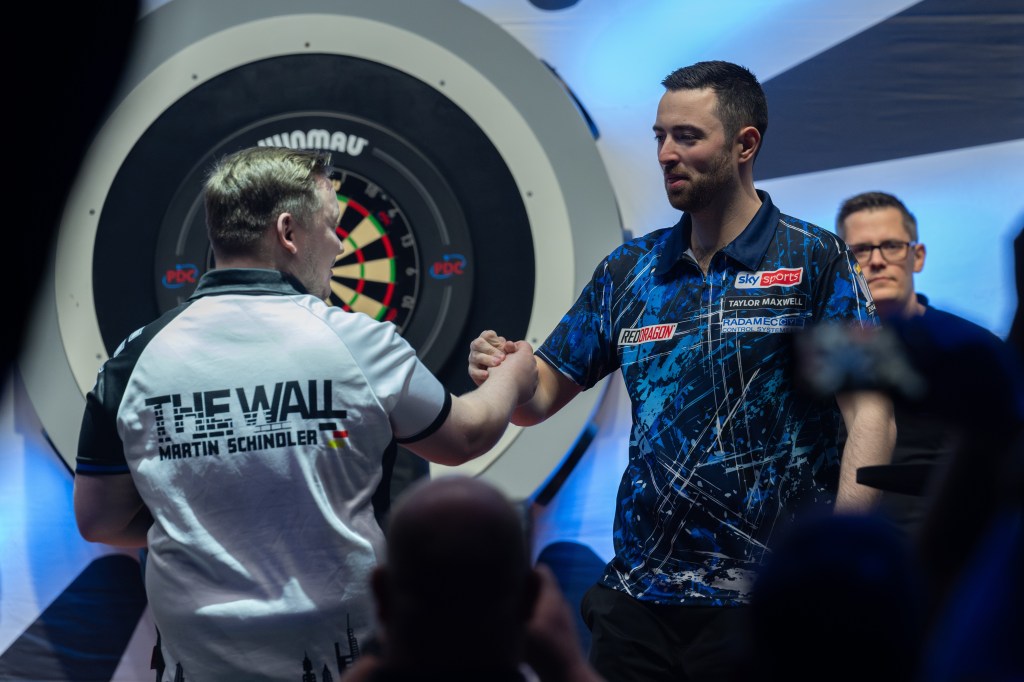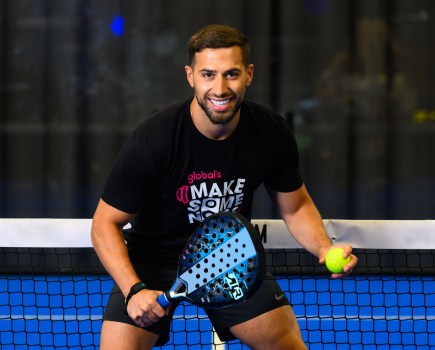Darts world number one Luke Humphries talks weight loss, nutrition and exercise and when he’s planning to retire!
Luke Humphries is the world’s number one ranked darts player. World Champion in 2024, his rivalry with Luke Littler has set the darts world on fire and drawn thousands of new supporters.
His well-publicised weight loss and fitness drive four years ago saw him lose more than four stone in weight. But it also marked a meteoric rise to the top of the sport.
We caught up with the player they call ‘Cool Hand Luke’ at the First Direct Arena in Leeds before the Premier League night (which he won!) to talk darts, nutrition and training.
Men’s Fitness: What are your prospects for tomorrow night?
Luke Humphries: Hopefully winning. It’s kind of my hometown – I’m not from Leeds but I support Leeds United. I’ll probably get the best support and I’m really looking forward to performing tomorrow and hopefully winning (Humphries beat Luke Littler in the final 6-5). That would be my third win of the season and would cement my place in the O2 which is the finals night.
MF: You’ve been world number one know for 18 months. How difficult is it to maintain that consistency, and what does it take?
Luke Humphries: It is hard because you have to have to be consistently winning and, if you’re not winning, people are catching you up that are ranked lower than you.
It does take a level of consistency. You can’t always be perfect, but you have to be winning tournaments more often then you’re not. If I don’t have a good back end to this year and maybe win the World Championships, then I’ll probably will lose my top spot. It’s important that, over the next six to seven months, I start performing to the best of my capabilities.

MF: If you look at Judd Trump in snooker, he’s world number one by quite some distance and yet hasn’t won the ‘blue riband’ event – the World Championships – for two years now. Consistency at the top seems to be key?
LH: Over the last two years, I’ve won seven major titles. Apart from Luke Littler, no one else has won more than one.
MF: It’s no secret that you lost a considerable amount of weight, starting in 2021. You’ve said in the press that, by doing that, it helped you get to the level – and stay at the level -you’re now at. Is that how you view it?
LH: Definitely. I honestly do put my success down to the way I lost weight. I was very fatigued when I was overweight. Darts is a non-physical sport but you’re on your feet all the time.
When you carry an excess weight, it just tires you out. I felt like when I lost the weight, I was much more energetic, exercising more and could cope with the longer days much better. It was the missing ingredient in my game – I was always very good but not good enough for long enough.
MF: How long did it take for you to notice the changes?
LH: The best way to put it into perspective is that I started losing weight in January 2021 and by the start of March I made my first major final. A week later I made another final on the pro tour and another one six weeks later. I was already noticing things that weren’t happening before.
All of a sudden, I was making finals and performing at a higher level more consistently. It was a slow progression up the ranks but I noticed the changes really quickly.

MF: Darts players of the 1980s didn’t reflect the epitome of fitness. Has the nature of the sport now changed?
LH: If you look at the players ranked in the top 64, not a lot of them are overweight. There is a much broader bunch of players now that like to look after themselves.
It’s really important for your image too, because if you look good, it’s good for the sport. Our first world number one that was in great shape was (ex-pro rugby player) Gerwen Price. I took inspiration from him: he made the long days look so easy.
Other players will make that jump when they want to. It’s easy to get in a rut. Everyone seems to have a moment in their life where they let things slip and put on weight and then bounce back.
MF: Your exercise of choice was a stationary bike. Do you still do that?
LH: Yes, I was doing around half an hour a day. I never enjoyed running and I felt like if that’s what I’d started with, it wouldn’t have lasted. I had to do something that I knew I could stick to.
Biking for me was easier to do; I needed to do something that was sustainable and that I was going to enjoy. It’s a great way to lose weight. It’s harder for me to do now as I’ve have children and much less free time. But I always make a conscious decision to do a small amount to keep ticking over.
MF: You are also much stricter about your nutrition?
LH: Changing my nutrition was the most important thing for me. It wasn’t that it was a diet – it was a lifestyle change. Of course I have treats and enjoy myself, but I’m very strict in that the next day won’t be a ‘bad’ day. When I’m in a tournament, my nutrition is always really healthy.
I always find when I have ‘bad’ food, it can upset your stomach and make you feel lethargic. When I’m playing darts, I like to feel really light and free.
MF: Is that easy to manage in places you don’t know?
LH: It’s all about making conscious choices. If you’re in a place where there isn’t much healthy food, but there is some – you go for the healthy choice. There’s so much to choose from in a big city; my go-to is Nando’s as you can’t really go wrong with chicken, rice and broccoli.
MF: Darts and snooker players seem to be playing for longer and later in their lives. Do you see yourself doing the same? Will you still have a love for the game?
LH: I don’t think I’ll be playing past 50, mostly because I won’t need to. The money wasn’t as good in darts 20 years ago as it is today.
Nowadays, you earn a lot of money and I don’t think you need to be too greedy and overstay your welcome. If I’m still at the top in 20 years’ time, I think I’ll have earned more than enough to not have to carry on. I don’t want to work too hard and not get to enjoy my life.
What I’ve got right now is something that I’m going to keep working hard on, winning money and, more importantly, win as many titles as possible.






